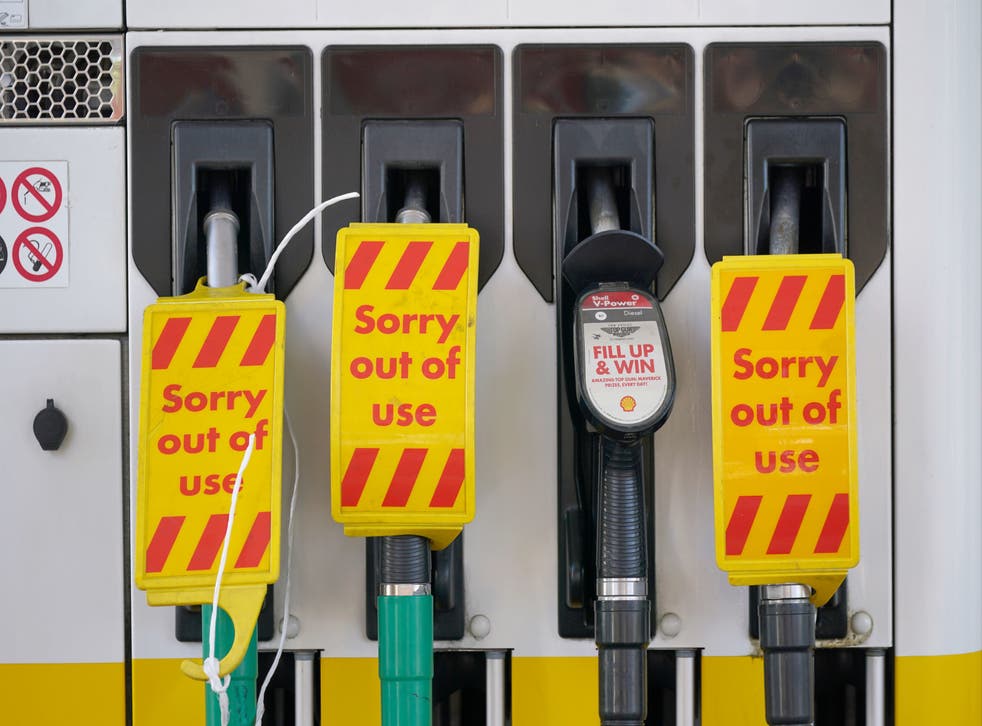
Difficulties in transporting fuel to the pumps has led to long queues at stations up and down the country, with the Government calling on extraordinary measures such as suspending competition laws, issuing temporary visas to drivers from abroad and even putting the military on standby as the problem escalates.
Dr Florian Lucker, senior lecturer in Supply Chain Management at Bayes Business School, explained the effects of the current situation on the supply chain as a whole, right up to refineries: “The fuel crisis highlights the risk of supply shortages for many commodity products, ranging from fuel to beverages or toys.”
“These products are produced and delivered to customers using cost-efficient supply chains which are designed to deal with a stable pattern of demand and supply. When either of these is disrupted, as with current demand for fuel, product shortages are inevitable and, with price competition, there is little room for manoeuvre.
Consumer behaviour can exacerbate supply issues
“Panic buying only results in less fuel being available for those that need it: a similar pattern to the one we observed at the start of the pandemic with toilet paper,” Dr Lucker explains. “Unfortunately, this panic buying distorts the supply chain significantly because the ‘false’ demand works its way along the supply chain up to fuel refineries. If refineries increase their production output, then, due to processing times, they will not be able to reduce these additional capacities when the demand goes back to normal. As a result, there is an oversupply of fuel, and the cost of these inefficiencies is generally passed down to the customer.”
Why is petrol supply so rapidly impacted?
“We can view the petrol supply situation on two levels,” Professor Manmohan Sodhi, Professor of Operations and Supply Chain Management at Bayes Business School said. “Firstly, petrol is a fast-moving good and is not stored in large volumes at any petrol pump. Secondly, a car owner has no substitute. Both these together imply that any hint of shortage for any reason will lead to panic buying by car owners, resulting in shortages at best.
“However, at a higher level, from these shortages – whether caused by Covid, quarantines or the uncertainties caused by Brexit – it is abundantly clear that there is spill-over across sectors from a shortage of drivers, and it is not a good situation.”
With Government officials urging people to stay calm and not panic buy, and implementing emergency measures, will the problem be resolved any time soon?
“The Government’s temporary visa scheme may either help or further harm the situation, as it is a band aid solution,” Professor Sodhi said. “It can get the business monkey off its back by letting companies themselves find workers from wherever they can at whatever wages. Conversely, it may further the uncertainties that are keeping workers away or out of the labour market. Sure, the Government can go to low-cost countries and offer visas to HGV drivers, but what happens after three months?
“A better temporary solution would be to ask people to conserve fuel for a few days by putting measures in place that decrease non-essential driving. This would give oil companies time and leeway to sort out their inventories. This is indeed a case of ‘less is more’ in terms of effectiveness.
“Shortages of goods and labour stemming from restarting the economy after lockdown in the face of pent-up demand will take time to resolve. The Government must reduce uncertainties around Brexit and ensure the smooth flow of goods, but unfortunately this relies on EU partners having the same urgency.”
Transparency is key to resolving the crisis.
“Building trust in policy makers and fuel providers to overcome the supply issues will motivate people to stop panic buying,” Dr Lucker said. “Better information-sharing and trust between all parties would also be highly beneficial. This means fuel station operators should communicate the true rate of demand to refineries.
“The common practice of exaggerating demand to the refineries might help fuel station providers receive more supply in the short term, but it hurts the supply chain in the long term.”

